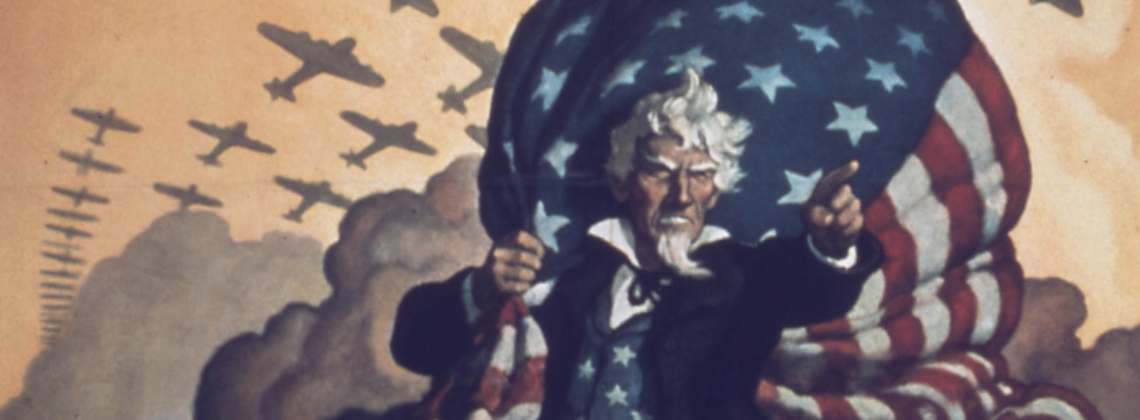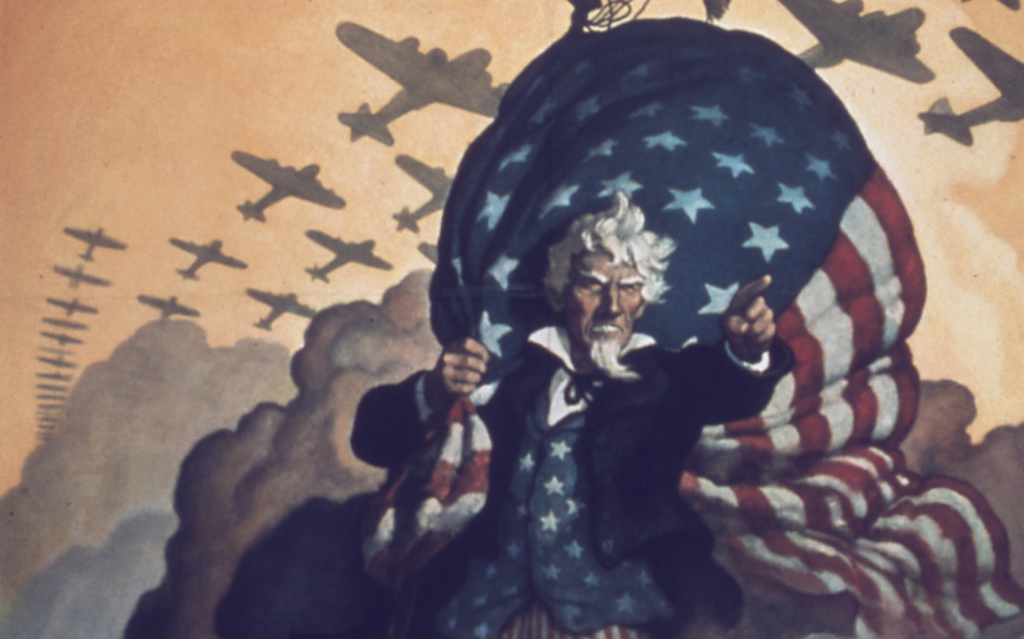

A 1940s foreign policy breakthrough is in jeopardy
Henry Luce knew he was facing a skeptical audience when he argued in Life magazine in early 1941 that the United States should adopt an international role and view its fortunes as tied to the rest of the world. Luce was editor of the nation’s largest news magazine of the time and was a well-respected voice in international affairs. Still, he knew that his internationalism was at odds with the sentiments of many of his fellow citizens, who still believed the United States could thrive while remaining aloof from Europe and Asia.
Even though Nazi Germany had taken over most of continental Europe by that point, a majority of Americans wanted to keep the United States out of World War II—and by extension, out of world affairs altogether. Charles Lindbergh’s “America First” movement, which claimed that the United States could best protect itself by staying out of foreign conflicts, was alive and well.
To persuade skeptical Americans that they should care about what happened overseas—not just during the Second World War, but as participants in the international community after the war was over—Luce made two arguments. It was in America’s self-interest to care about what happened internationally, he said, because the world was interconnected. What happened elsewhere would inevitably affect the United States. And second, it was the right thing to do, because America had a duty to be a “Good Samaritan” to the rest of the world.
This last principle was a reflection of Luce’s liberal Protestant heritage as the son of Presbyterian missionaries in China. Though Luce strayed a bit from his childhood faith, he never entirely abandoned its assumptions. At the time he wrote, even many Americans who were not regular churchgoers believed in the moral precepts of the liberal version of Christianity, including the principle of loving one’s neighbor and helping the less fortunate. Luce’s claim that a “Good Samaritan” ethic should prompt Americans to care about people in other countries carried a lot of weight.
At first it was the claim of self-interest that probably had the most persuasive effect on Americans who were previously inclined toward isolationism. Until the attack on Pearl Harbor, public opinion polls indicated that most Americans wanted to stay out of World War II. After the attack, however, Americans were suddenly struck with a new realization of their country’s vulnerability. The oceans were no longer enough to protect them; they could not hide from the rest of the world. And if that was true in 1941, it was even more true by the end of the 1940s, when the atomic bomb and the new technology of air warfare made isolationist assumptions obsolete.
In an interconnected world where the nation could not isolate itself from its enemies, it could protect itself only by relying on global networks of allies. In a sweeping abandonment of more than a century of tariffs and protectionist economic policy, the United States took the lead in promoting free trade and establishing an international economic system that was tied to the U.S. dollar. The United States also began using its economic resources to rebuild the war-torn economies of Western Europe. Also, it pledged itself to a military defense against Communism in Europe, so Western European countries could devote their own meager resources to economic advancement instead of having to pay for their own defense.
And yet this impulse toward self-protection was always integrally related to a sense of mission. The United States advocated free trade not merely because it would improve the American economy (though economists certainly argued that it would) but because it would promote world peace by creating a globally interdependent economy in which all nations would enjoy increased prosperity. The United States pledged itself to defend Western Europe not merely to protect its own shores but because it believed totalitarianism was an evil that no country should have to experience.
Luce said as much in the closing lines of his 1941 article: “Unless our vision of America as a world power includes a passionate devotion to great American ideals,” it will “fail,” he warned. The United States could not be an isolated power nor an uncaring imperialist behemoth; it had to be a “Good Samaritan” devoted to upholding “a love of freedom, a feeling for the equality of opportunity, a tradition of self-reliance and independence and also of cooperation.” If it did not do so, it would not be America. It might be a great imperial power, but it would not be the beacon of liberty that was worth living and dying for.
Four years later, President Franklin Roosevelt said the same in his inaugural address of 1945:
We have learned that we cannot live alone, at peace; that our own well-being is dependent on the well-being of other nations far away. We have learned that we must live as men, not as ostriches, nor as dogs in the manger.
We have learned to be citizens of the world, members of the human community . . .
The Almighty God has blessed our land in many ways. He has given our people stout hearts and strong arms with which to strike mighty blows for freedom and truth. He has given to our country a faith which has become the hope of all peoples in an anguished world.
So we pray to Him now for the vision to see our way clearly–to see the way that leads to a better life for ourselves and for all our fellow men—to the achievement of His will to peace on earth.
For nearly eighty years this international vision of the United States as a “citizen of the world” whose “well-being” was “dependent on the well-being of other nations far away” attracted the support of both Republicans and Democrats.
But recently it has come under unprecedented assault by those who want to roll back or dismantle all the internationalist institutions of the 1940s, including free trade agreements, international economic organizations, and the North Atlantic Treaty Organization (NATO), among others. Instead of behaving as “citizens of the world,” some Americans seem to think that the United States can be an “ostrich” or a “dog in the manger,” greedily seizing whatever it can get and growling at anyone else who might come near.
The liberal Christian assumptions that guided Luce and FDR’s foreign policy commitment to being a “Good Samaritan” to the world no longer attract majority support. Even the claim of self-interestedness no longer carries much weight among those who think that the United States really can succeed by reneging on its commitments to its allies.
At this pivotal moment, perhaps it’s time to remind ourselves that there was a time when Americans were equally skeptical about international concern. Furthermore, it’s time to revisit the internationalist arguments that persuaded these isolationists to reconsider. When Luce produced his defense of internationalism, he was writing to skeptics, and when FDR gave his inaugural address, he was speaking to very recent (and reluctant) converts. Americans embraced internationalism only because they saw the horrific consequences of isolationism, and because they were inspired by a vision of American ideals that were larger than simply behaving like a greedy dog at the manger.
An internationalist vision does not necessarily mean a pledge to go to war. It does mean a commitment to using the instruments of peace (such as free trade, economic aid, and humane policies for refugees and other immigrants) to promote the well-being of other nations, knowing that our own national well-being depends on other countries’ prosperity.
Above all, it means thinking of our own country as integrally dependent on other countries’ well-being. This was the great foreign policy breakthrough of the 1940s—and it’s one that we’re at risk of losing if we forget the reasons why a reluctant America came to embrace it.
Daniel K. Williams is a historian working at Ashland University and the author of Defenders of the Unborn: The Pro-Life Movement before Roe v. Wade and The Politics of the Cross: A Christian Alternative to Partisanship. He is a Contributing Editor at Current. You can find him on Substack.
Image: US War Bonds poster, c. 1942
I suspect this is key: “Until the attack on Pearl Harbor, public opinion polls indicated that most Americans wanted to stay out of World War II. After the attack, however, Americans were suddenly struck with a new realization of their country’s vulnerability.”
In sum, it wasn’t Luce’s or Roosevelt’s arguments that changed people’s minds, but events.
If that’s right, then it makes sense that after eighty years of relative safety (with one exception) on the continent–and with some very recent improvident wars on the ledger illustrating how this internationalist vision can go awry–the mind-focusing effects of those long ago events would be wearing off, and we would be reverting to form, as it were.
Indeed–even though if in say 2005 after listening to George W. Bush promise to eradicate tyranny in the world it might have been hard to believe–taking the long view makes it unsurprising that it would be the Republicans who are leading the change back towards a pre-1940s mindset. It was they, of course, who offered the most resistance to Roosevelt when he was trying to take the nation in that direction, they who tried to undercut it as soon as the war was over by defending the project, and they who were only reluctantly brought on board with what was really a Democratic agenda as a result of the Cold War (and of electing a non-ideological, pragmatic president of their own with virtually no roots in the party’s worldview, Dwight Eisenhower).
If all that is correct, we should probably expect American internationalism going forward to look like a lot of other initiatives such as taxes on capital gains and etc.–going in one direction when Democrats have the government, the other when Republicans do. (Unless some Pearl-Harbor-like event intervenes to impose a new realization–a possibility that, as attractive as it’s capacity for clarifying alternatives may be, I find it hard to positively wish for.) Of course, insofar as America creates a security vacuum as it withdraws, other powers will step in, which will likely mean a world bristling with a lot more weapons, less cooperation, more fear and distrust, less prosperity, and so forth.
We should consider the possibility that we may very well be partying like it’s 1939 one of these days …
Oopsy: “they who tried to undercut it as soon as the war was over by *defunding* the project”